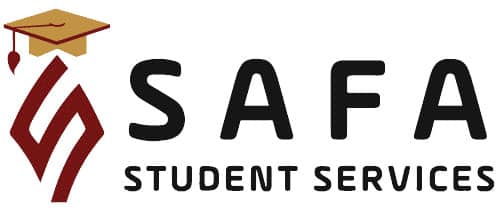Overview about Study and Work In Turkey

Many prospective students ask whether it is possible to study and work in Turkey simultaneously. This question arises due to financial constraints students may face while living and studying there, prompting them to seek employment alongside their studies. Additionally, students aim to gain practical experience and connect their academic learning with the job market. This article will shed light on these aspects, providing a clear picture for students.
جدول المحتويات
The Possibility of Combining Study and Work in Turkey for Students
Students can indeed study and work in Turkey at the same time, thanks to the flexibility offered during their academic programs, whether at the undergraduate, master’s, or doctoral levels. Here’s a breakdown of the different scenarios:

– Undergraduate Students: Those pursuing a bachelor’s degree must complete their first academic year before being eligible to work part-time. They can work a limited number of hours each month, as per the regulations set by the Ministry of Labor and Social Services.
– Graduate Students: Master’s and doctoral students can also engage in specific jobs and professions. Moreover, they have opportunities to work as researchers on projects related to their field of study. Some private universities offer scholarships in exchange for students working as teaching assistants.
Suitable Jobs for Students While Studying in Turkey
Studying and working in Turkey is a significant goal for many international students, especially from Arab countries. They aspire to live in a European country with a rich history and diverse cultures like Turkey. One of the critical considerations for these students is the ability to work while studying. There are various job opportunities and career options that can be both fair and lucrative for university students.
Given the vast job market in Turkey, it’s impossible to list all job opportunities. However, the following are some of the most suitable and rewarding jobs for students:

- Customer Service Representative: Students can work in customer service over the phone. This part-time job does not interfere significantly with their studies.
- Freelance Work: Students can leverage their skills in areas such as programming and design to find freelance work.
- Translation Services: Arabic-speaking students who learn Turkish can work as translators, bridging the language gap between Arabic and Turkish.
- Childcare: Female students can work as babysitters, a job that aligns well with a part-time schedule.
- Driving: Students with driving skills can secure jobs as drivers, offering flexible working hours.
- Tour Guide: Students can work as tour guides, a job that is particularly suited for those who enjoy interacting with people and sharing knowledge about Turkey.
- Sales and Marketing: Students can delve into sales and marketing, including real estate marketing, to gain practical experience in these fields.
- Production Line Work: There are opportunities for students to work on production lines in food processing factories.
- Retail and Administrative Jobs: Students can work in shops and markets as cashiers or administrators.
- Electronics Repair: Students can train in repairing phones and electronic devices, gaining hands-on technical skills.
You can register with us now at Safa Company and obtain your university admission easily.
Safa Company is your first educational companion🎓 to communicate on WhatsApp🎓
Study and Work In Turkey: Finding Job Opportunities for Students
When students consider the possibility of studying and working in Turkey, they often wonder how to find job opportunities upon their arrival. There are several effective methods to help you secure suitable employment, such as networking with friends and acquaintances who may know about available job openings in Turkey.

You can also apply directly to various companies. Remember to prepare a professional resume to present to employers. Additionally, using professional networking platforms like LinkedIn can be beneficial. Students can explore job listings on specialized employment websites in Turkey.
When traveling to study and work in Turkey, there are several important points and frequently asked questions that many students need answers to. Here are some of these questions:
1) What Happens if a Student Works Without an Official Permit?
A student working without an official permit is subject to a specified fine according to Turkish labor laws. Additionally, the student cannot benefit from the employment rights stipulated in the same law.
2) What is the Required Residence Duration to Obtain a Work Permit?
The residence permit must be valid and active for at least six months, which is the duration required by the Turkish government to activate the work permit provision.

3) Can Students Find Work During the Summer Vacation in Turkey?
Yes, students can work during the summer vacation. They can search for summer job opportunities through the specialized websites mentioned earlier. Studying and working in Turkey is possible, but it requires obtaining a student visa, a valid residence permit, and a work permit. Students must focus on their primary goal of academic success and differentiate between study and work periods to avoid confusion.
To achieve this balance, students should develop strategies and plan their time well to avoid chaos in their schedules, finances, and efforts, ensuring they don’t end up with nothing to show for their efforts.
In conclusion, students planning to travel for study and work in Turkey should contact accredited official bodies to organize their travel procedures. Avoiding unverified routes and unauthorized individuals or organizations in this field is crucial. This ensures a clear path towards achieving your goals as a student aiming to live in an advanced country like Turkey.
By following these guidelines, students can successfully navigate the challenges of studying and working in Turkey, making the most of their time and opportunities in this vibrant country.
Latest News
Related Articles & News
Follow our latest articles

Studying Mechanical Engineering in Turkey 2025: A Pillar of Industry and Innovation
In our modern world, from the engines of the cars that drive us daily to giant electricity-generating turbines and precision...
See More
Studying Artificial Intelligence Engineering in Turkey 2025: Towards a Future Led by Intelligent Machines
In a world experiencing an unprecedented technological revolution, Artificial Intelligence (AI) has become the driving force behind innovation in almost...
See More
Studying Dentistry in Turkey 2025: A Bright Smile for a Promising Future
In a world where health and beauty are increasingly important, dentistry is a medical profession that combines scientific precision with...
See More
Studying Aeronautical Engineering in Turkey 2025: Soar into the skies of innovation
Imagine yourself as part of a team designing the aircraft of the future, a cutting-edge space system, or developing technologies...
See More
Studying Biomedical Engineering in Türkiye 2025: A bridge linking engineering and health
In an era of rapid medical advancement, cutting-edge medical equipment has become the backbone of modern healthcare, from precision diagnostic...
See More
Studying Anesthesiology in Turkey 2025: A vital profession at the heart of healthcare
In every surgical procedure, and in many complex medical operations, the anesthesiologist plays a pivotal role, no less important than...
See More


